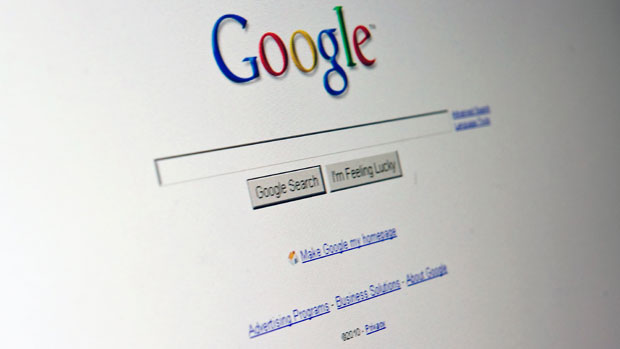Lords say 'right to be forgotten' is unworkable
Parliamentary committee says that asking Google to police the web is unreasonable

A free daily email with the biggest news stories of the day – and the best features from TheWeek.com
You are now subscribed
Your newsletter sign-up was successful
Forcing search engines to censor the internet and take down personal information to respect people's "right to be forgotten" is unfair, ambiguous and unhelpful, a Parliamentary committee has said.
The Lords home affairs EU sub-committee said that the European Court of Justice's ruling on the issue was unreasonable and placed a heavy onus of responsibility on Google and other search engines.
It also concluded that it would be wrong to give private companies the job of deciding what should and should not appear online, and to allow people to have information removed because they do not "like" it.
The Week
Escape your echo chamber. Get the facts behind the news, plus analysis from multiple perspectives.

Sign up for The Week's Free Newsletters
From our morning news briefing to a weekly Good News Newsletter, get the best of The Week delivered directly to your inbox.
From our morning news briefing to a weekly Good News Newsletter, get the best of The Week delivered directly to your inbox.
In May, the ECJ ruled that search engines should delete outdated and irrelevant data on request. The move sparked a "fierce debate about censorship of material and right to privacy," the BBC says, but so far Britain has not moved to address the ruling.
In the two months since the verdict, Google has received 70,000 requests from private individuals seeking to have their data taken down.
The court's finding was based on Article 12 of the EU's directive on the protection of personal data – a directive that came into force three years before Google was founded.
The committee said: "It is crystal clear that the neither the 1995 directive nor the [ECJ's] interpretation of it reflects the incredible advancement in technology that we see today, over 20 years since the directive was drafted".
A free daily email with the biggest news stories of the day – and the best features from TheWeek.com
The committee's chair, Baroness Prashar added: "We also believe that it is wrong in principle to leave search engines themselves the task of deciding whether to delete information or not, based on vague, ambiguous and unhelpful criteria.
"We think there is a very strong argument that, in the new regulation, search engines should not be classed as data controllers, and therefore not liable as 'owners' of the information they are linking to.
"We also do not believe that individuals should have a right to have links to accurate and lawfully available information about them removed, simply because they do not like what is said".
-
 5 cinematic cartoons about Bezos betting big on 'Melania'
5 cinematic cartoons about Bezos betting big on 'Melania'Cartoons Artists take on a girlboss, a fetching newspaper, and more
-
 The fall of the generals: China’s military purge
The fall of the generals: China’s military purgeIn the Spotlight Xi Jinping’s extraordinary removal of senior general proves that no-one is safe from anti-corruption drive that has investigated millions
-
 Why the Gorton and Denton by-election is a ‘Frankenstein’s monster’
Why the Gorton and Denton by-election is a ‘Frankenstein’s monster’Talking Point Reform and the Greens have the Labour seat in their sights, but the constituency’s complex demographics make messaging tricky
-
 Will AI kill the smartphone?
Will AI kill the smartphone?In The Spotlight OpenAI and Meta want to unseat the ‘Lennon and McCartney’ of the gadget era
-
 Has Google burst the Nvidia bubble?
Has Google burst the Nvidia bubble?Today’s Big Question The world’s most valuable company faces a challenge from Google, as companies eye up ‘more specialised’ and ‘less power-hungry’ alternatives
-
 How the online world relies on AWS cloud servers
How the online world relies on AWS cloud serversThe Explainer Chaos caused by Monday’s online outage shows that ‘when AWS sneezes, half the internet catches the flu’
-
 Is the UK government getting too close to Big Tech?
Is the UK government getting too close to Big Tech?Today’s Big Question US-UK tech pact, supported by Nvidia and OpenAI, is part of Silicon Valley drive to ‘lock in’ American AI with US allies
-
 Google: A monopoly past its prime?
Google: A monopoly past its prime?Feature Google’s antitrust case ends with a slap on the wrist as courts struggle to keep up with the tech industry’s rapid changes
-
 South Korea's divide over allowing Google Maps
South Korea's divide over allowing Google MapsTalking Points The country is one of few modern democracies where the app doesn't work
-
 Google avoids the worst in antitrust ruling
Google avoids the worst in antitrust rulingSpeed Read A federal judge rejected the government's request to break up Google
-
 Is AI killing the internet?
Is AI killing the internet?Talking Point AI-powered browsers and search engines are threatening the death of the open web